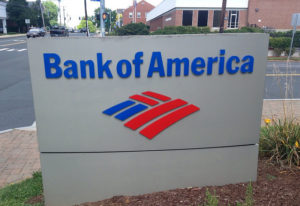Bank of America Schemes to Evade Settlement Rules and Pocket Cash
Documents leaked by a bank insider show the company sold servicing rights to more than half a million mortgages to loan servicing companies in order to make a quick profit and avoid settlement requirements, leaving homeowners in the lurch and with fewer protections to avoid foreclosure, Salon reporter David Dayen writes.
Documents leaked by a bank insider show the company sold servicing rights to more than half a million mortgages to loan servicing companies in order to make a quick profit and avoid settlement requirements, leaving homeowners in the lurch and with fewer protections to avoid foreclosure, writes Salon reporter David Dayen.
The documents show that in January 2013, Bank of America sold more than half a million mortgages worth $93 billion to the parent corporation of Green Tree Servicing, a non-bank loan servicer based in St. Paul, Minn. Such companies are “buying up servicing rights to millions of mortgages, gradually positioning themselves to become the biggest companies in the space,” Dayen reports.
“These non-bank servicers, which process monthly payments and deal with foreclosures but do not originate loans,” Dayen continues, “have an asset not available to their big bank colleagues: They haven’t yet been officially caught scamming customers. Therefore, they are not a party to the various servicer settlements brought by state and federal regulators, and they need not submit to those settlement guidelines.”
Green Tree and other servicing companies Nationstar and Ocwen have worse track records for customer service and respect for borrowers than Bank of America. In a lawsuit against Green Tree Servicing, Leonard Law Office in Massachusetts claimed the servicer imposed illegal processing fees, “failed to process mailed payments on time; harassed borrowers by calling them at all hours of the night and using abusive language to try to collect on debts; and delayed or denied timely modifications.”
“These practices violate such federal laws as the Fair Debt Collection Practices Act, the Telephone Consumer Protections Act, and others,” Dayen reports.
By selling servicing rights to these companies, Bank of America gets a quick profit and is relieved of having to comply with settlement practices, meaning it does not have to increase its staff for compliance purposes. In addition to being relieved of all responsibility, “not only do they get some ready cash, they lower their labor costs.”
Dayen’s insider noted that these sales “may mean that any modification currently in process with BAC (Bank of America) will not be recognized and the borrower will proceed into foreclosure.” This is a common practice, Dayen says.
“Servicers who purchase servicing rights are not obligated to follow through on prior agreements with homeowners on loan modifications that have not yet been made permanent. So the homeowner, who thought they were well on their way to saving their home, instead has to start all over with a new servicer.”
Dayen concludes: “Regardless of how Bank of America resolves this situation, the damage to homeowners has already been done. Homeowners don’t get to choose their servicer — they just get passed around at the whim of big mortgage companies. And every time the servicing rights get transferred, they have to deal with a whole new set of practices. If they were fighting foreclosure at the time of the switch, then they have to start over, under typically disadvantageous circumstances. And that’s especially true when their new servicer sits outside the glare of strict oversight.”
— Posted by Alexander Reed Kelly.
Your support matters…Independent journalism is under threat and overshadowed by heavily funded mainstream media.
You can help level the playing field. Become a member.
Your tax-deductible contribution keeps us digging beneath the headlines to give you thought-provoking, investigative reporting and analysis that unearths what's really happening- without compromise.
Give today to support our courageous, independent journalists.






You need to be a supporter to comment.
There are currently no responses to this article.
Be the first to respond.